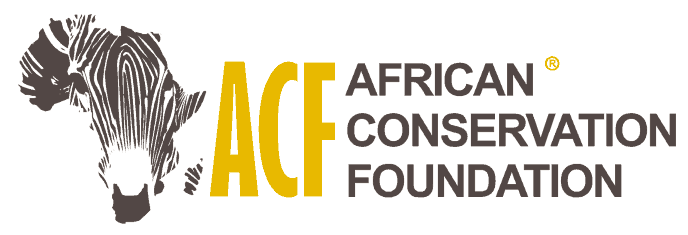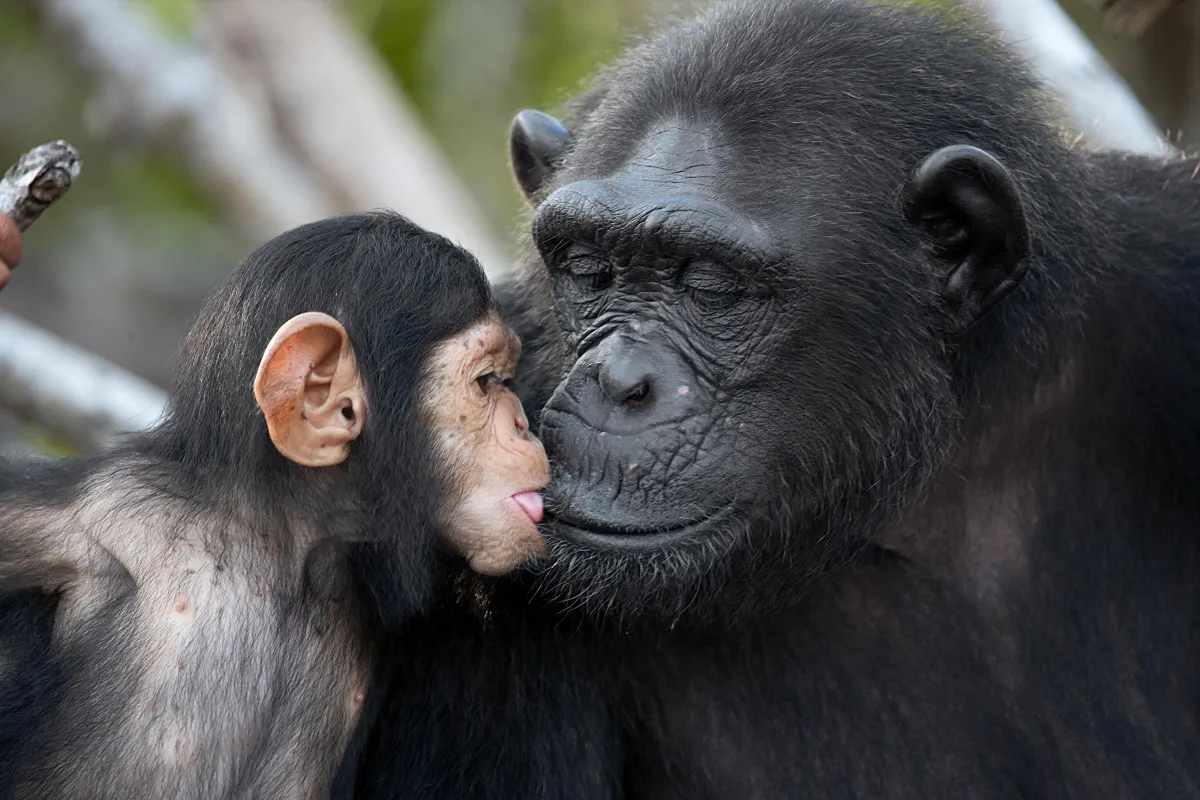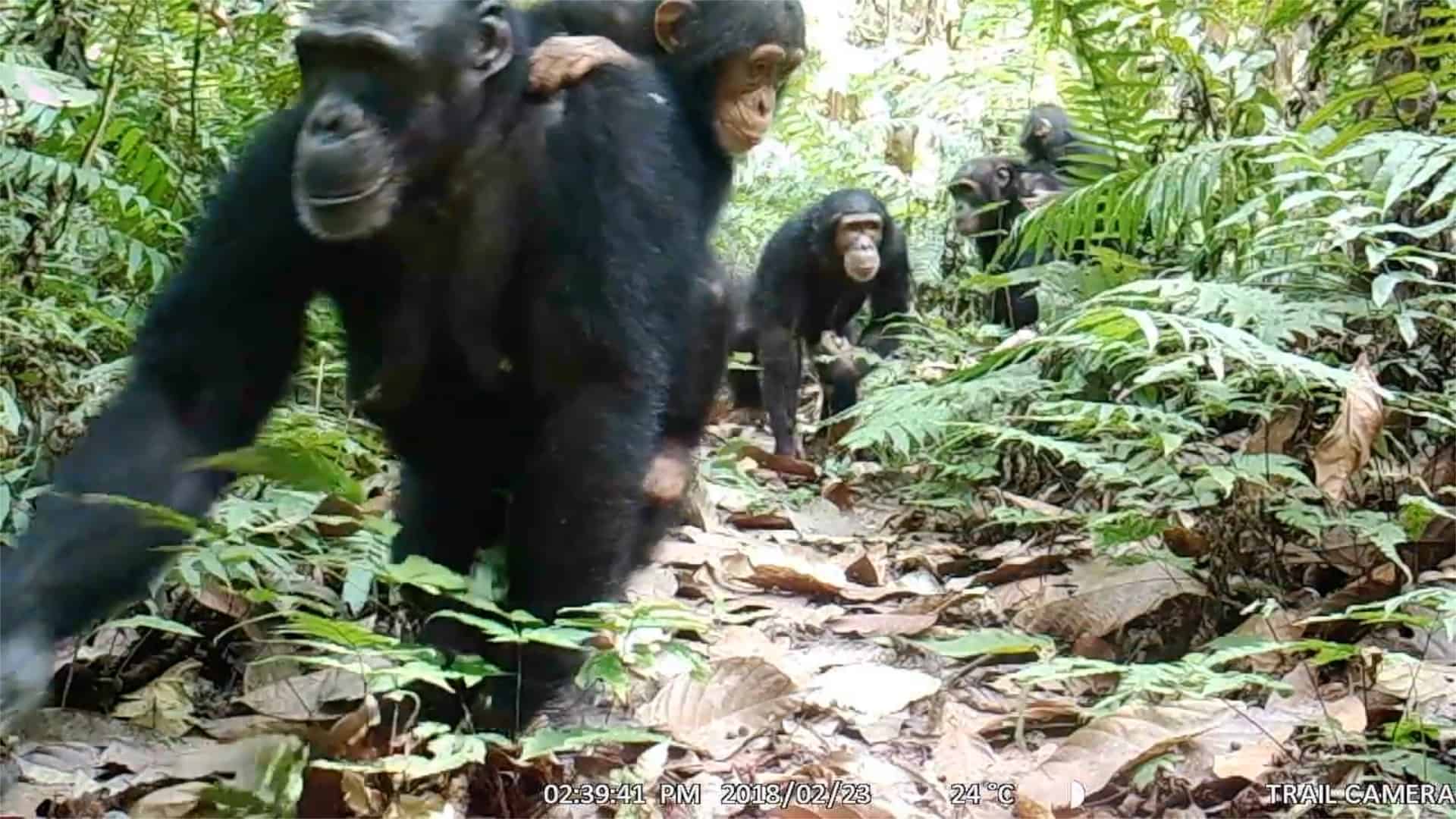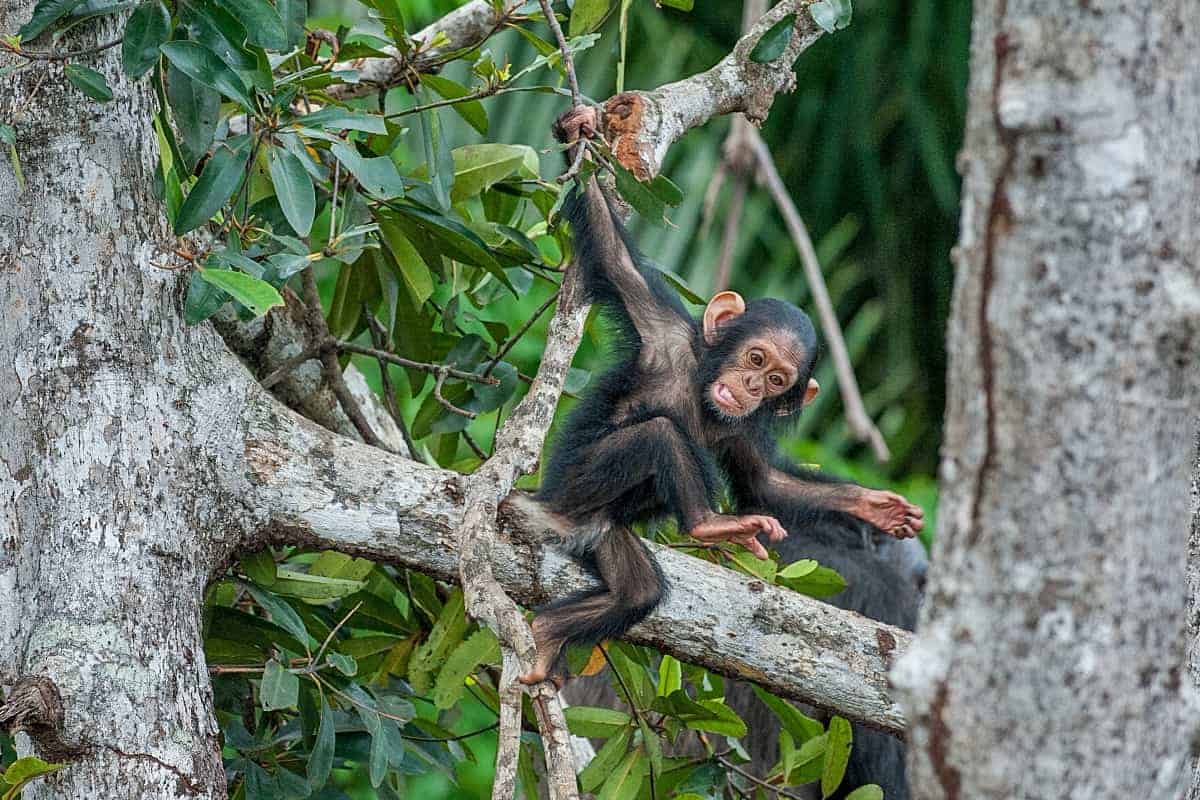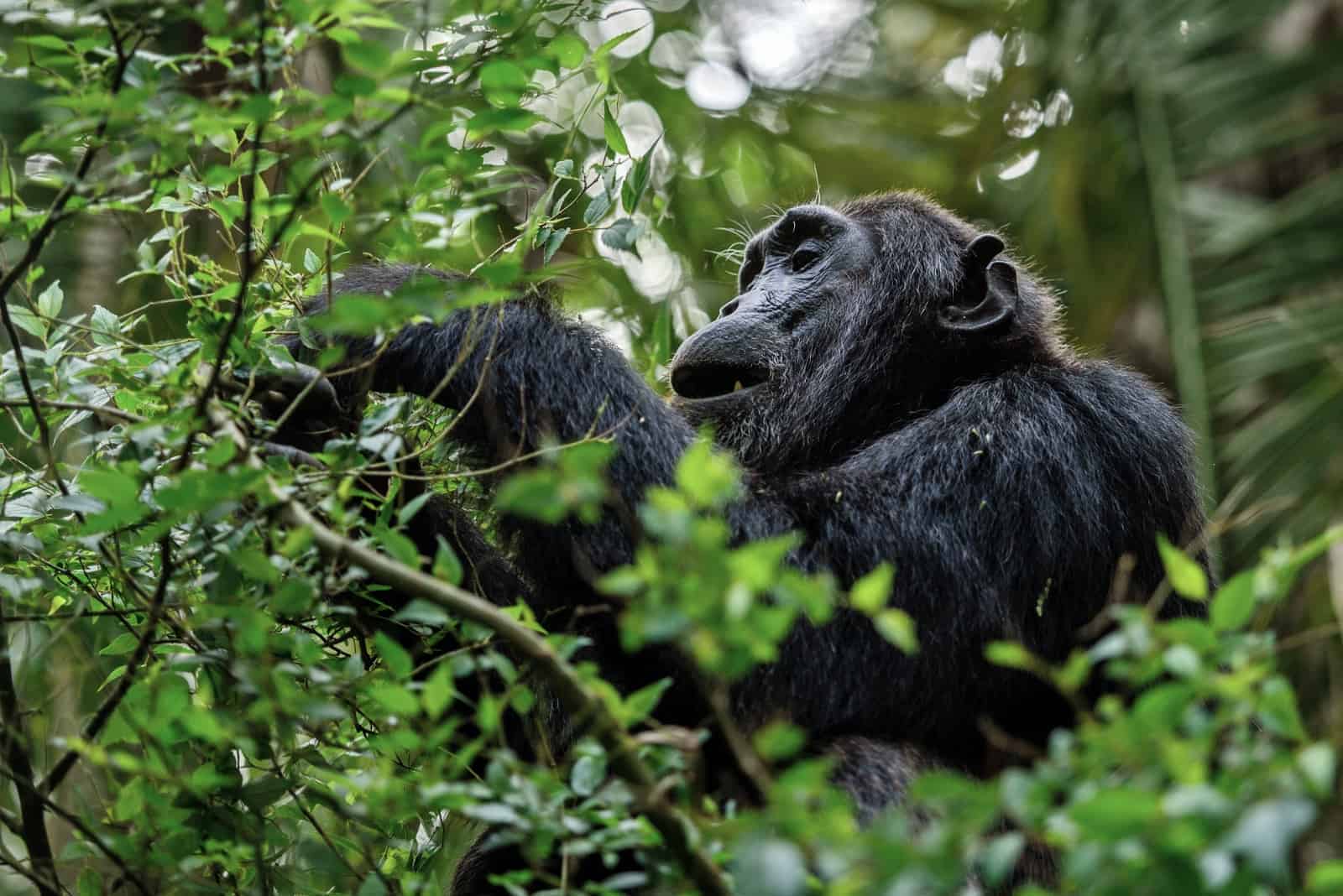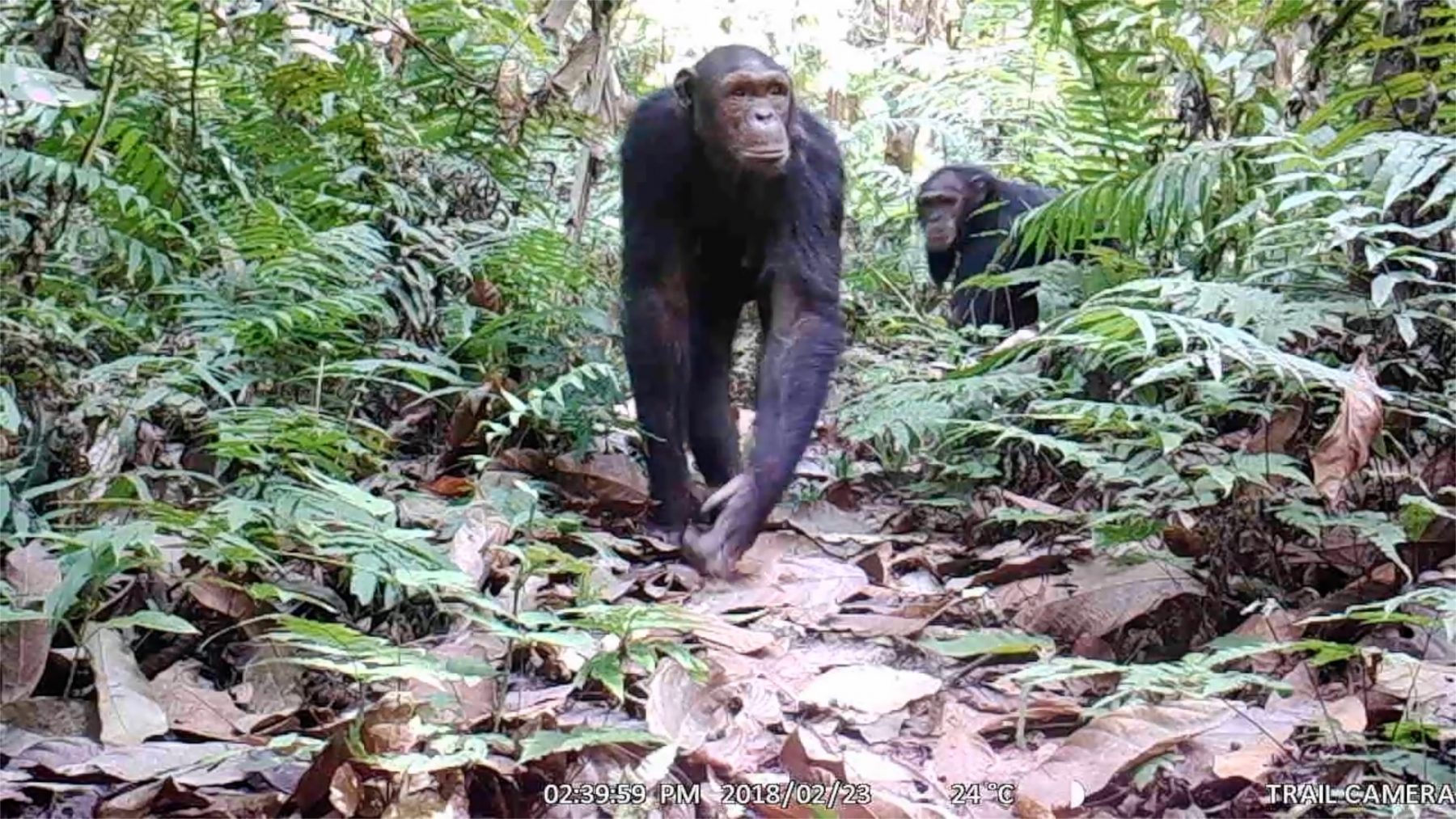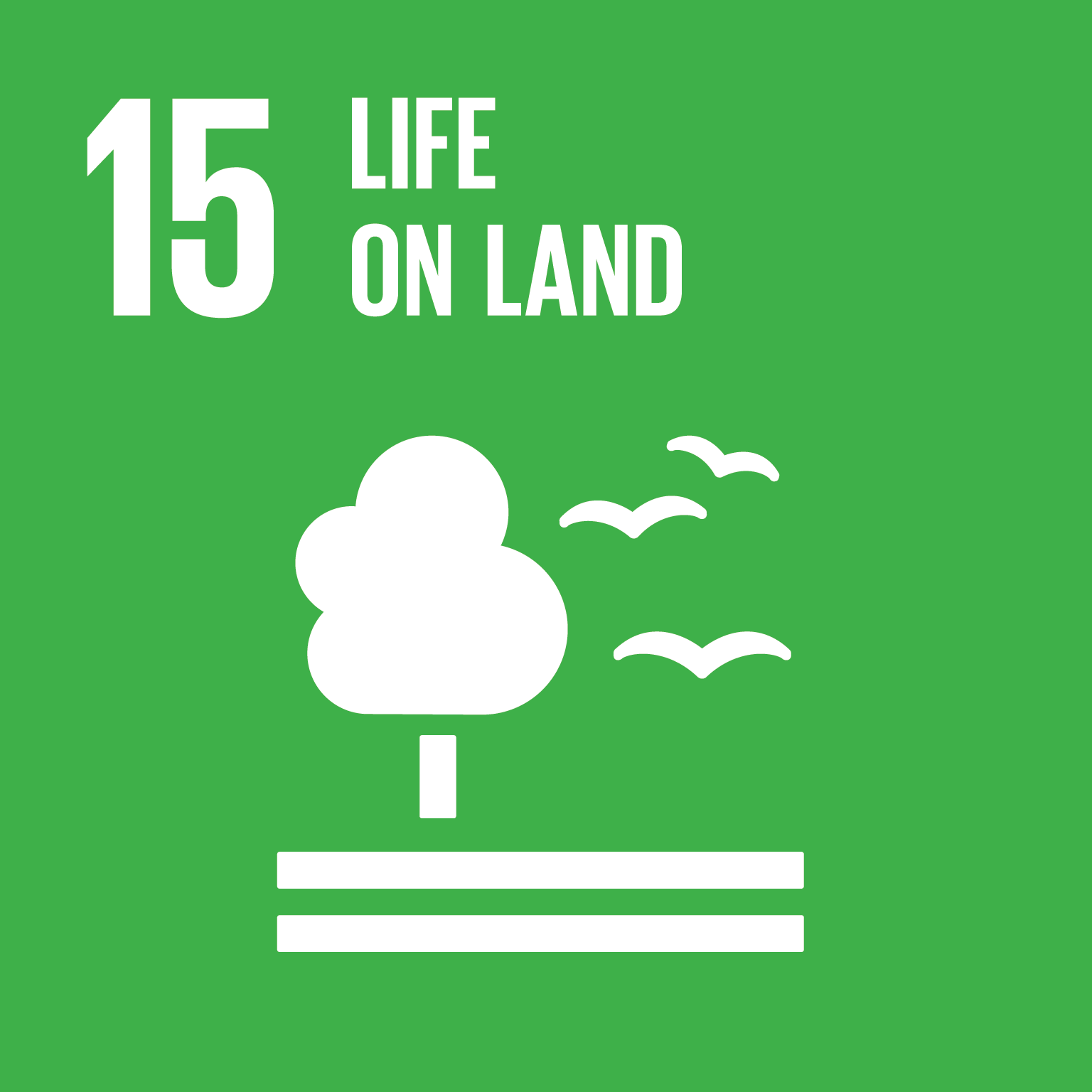The Nigeria-Cameroon chimpanzee is least distributed of all the chimpanzee subspecies. They are classified as Endangered on the IUCN Red List. This means it has a very high risk of extinction in the wild in the near future.
Endangered species
Nigeria-Cameroon chimpanzee
Habitat
Rainforest
Lebialem Highlands, South West Province, CM
Size of area
68,000 ha
Carbon
? mT
Partner
ERuDeF
The Problem
Nigeria-Cameroon chimpanzees face significant conservation issues that threaten their populations. Habitat loss and fragmentation due to deforestation and expanding human activities pose a grave danger to these primates. Road development, agricultural expansion, and logging activities result in the destruction and degradation of their natural habitats, limiting their access to food sources and suitable living spaces.
Another threat is illegal hunting and the bushmeat trade. Chimpanzees are often targeted for their meat, driven by local cultural practices and commercial demand. This unsustainable hunting pressure, coupled with inadequate law enforcement, further exacerbates the vulnerability of Nigeria-Cameroon chimpanzees. Conservation efforts are crucial to combat these threats, including habitat protection, community engagement, and strict enforcement of anti-poaching laws to ensure the survival and well-being of these endangered primates.
What we do
Anti-poaching, protected area development, corridors, conservation, research, conservation education.
Our conservation strategy focuses on halting habitat loss and fragmentation. We establish and protect critical chimpanzee habitats, working closely with local communities and stakeholders to promote sustainable land-use practices and restore degraded areas. By creating wildlife corridors and conserving key forested areas, we aim to ensure the connectivity and availability of suitable habitats for these endangered primates.
At the same time we tackle illegal hunting and the bushmeat trade through law enforcement and community outreach. By strengthening anti-poaching measures, supporting local community management, and raising awareness about the importance of conserving chimpanzees, we aim to reduce hunting pressure. We empower communities to become active participants in chimpanzee conservation, ultimately securing a brighter future for Nigeria-Cameroon chimpanzees.
Sustainable Development Goals
Our project contributes to the following UN Sustainable Development Goals.
